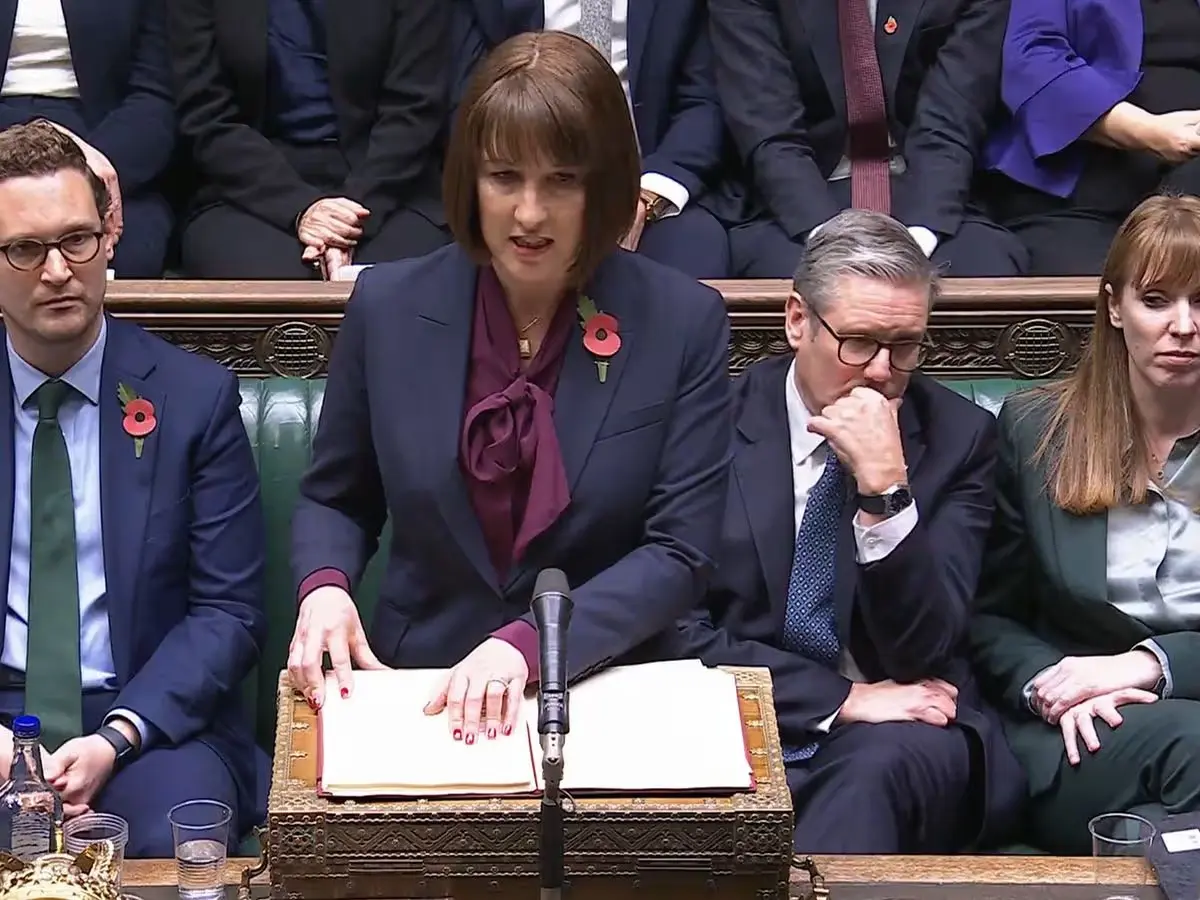In a significant move aimed at addressing long-standing pension arrears, Nigeria’s Federal Executive Council (FEC) has approved the issuance of a Federal Government bond worth N758 billion (approximately $509.3 million). This decision, which was disclosed by the Minister of Finance and Coordinating Minister of the Economy, Wale Edun, marks a crucial step toward clearing the outstanding pension liabilities owed to retirees under the old Defined Benefit Scheme (DBS). This announcement was made following a media briefing at the Presidential Villa in Abuja, presided over by President Bola Tinubu.
This approval addresses one of Nigeria’s most pressing fiscal challenges—clearing pension arrears that have accumulated over years due to disparities between wage increases and pension adjustments. The FEC’s decision aims to provide long-awaited relief to thousands of retirees who have been waiting for their rightful entitlements.
The Background of Pension Liabilities in Nigeria
The pension system in Nigeria has evolved over time, with the introduction of the Contributory Pension Scheme (CPS) in 2004, which was later updated in 2014. Before the CPS, Nigeria relied on the old Defined Benefit Scheme, under which pensioners were entitled to fixed payments based on their final salaries and years of service. However, as the economy faced inflationary pressures and wage increases became more frequent, pension payments often failed to keep up with these adjustments.
As Edun explained during the press conference, the pension arrears stem from accrued entitlements under the old pension system, which were not properly adjusted following periodic wage increases. Under the DBS, retirees typically received a top-up every time there was a wage review, which usually occurred every five years. However, due to delays and insufficient funding, these top-ups were not always promptly implemented, leading to a growing backlog of pension liabilities. Over time, this accumulated debt became increasingly difficult to manage, necessitating the government’s intervention.
Edun emphasized that the approval to raise N758 billion would allow the Debt Management Office (DMO) to secure the necessary funds to clear these long-standing liabilities, providing retirees with the much-needed relief and ensuring they receive their rightful pension payments when due.
The Government’s Strategy for Pension Reform
The pension liabilities accumulated under the old DBS system represent a complex challenge, as they span multiple years and involve adjustments tied to the fluctuating wage structures of the public sector. The Nigerian government’s decision to issue a bond to raise the necessary funds highlights a broader strategy of using innovative financing mechanisms to resolve systemic issues. By leveraging the debt markets, the government aims to not only clear the pension backlog but also address the underlying issues that caused the arrears to accumulate.
In addition to addressing pension arrears, the government’s broader fiscal agenda focuses on improving economic conditions, reducing poverty, and enhancing social protection for vulnerable populations. As part of this initiative, Edun pointed to a number of other key reforms aimed at stimulating growth and creating jobs, such as the approval of a €30 million concessional loan from the French Development Agency to support student housing projects across Nigeria.
Addressing the Housing Shortage for Nigerian Students
One of the critical issues facing Nigeria’s education sector is the severe shortage of student housing. According to Edun, the government is working in partnership with Family Homes Fund Limited to provide affordable, sustainable housing solutions for students in tertiary institutions across the country. The €30 million loan from the French Development Agency is intended to alleviate this shortage and promote the development of clean-energy housing solutions that will serve the growing student population.
Nigeria has one of the largest youth populations in the world, with millions of students attending tertiary institutions every year. The demand for student accommodation far exceeds the available supply, and the situation is particularly dire in urban centers like Lagos, Abuja, and Port Harcourt. This shortage has led to overcrowding, forcing many students to live in substandard conditions or commute long distances to their campuses. The government’s investment in student housing is seen as a key step toward improving the living conditions of students, enhancing access to education, and promoting sustainable development in the country.
Edun also highlighted the importance of the project in fostering sustainable housing solutions that are energy-efficient and environmentally friendly. By incorporating clean-energy technologies into the housing projects, the government aims to reduce the environmental impact of student accommodation and contribute to Nigeria’s broader climate goals.
The National Single Window Project: Streamlining Trade and Enhancing Competitiveness
In addition to addressing pension liabilities and housing challenges, the FEC also approved the implementation of the National Single Window Project, a major digital initiative designed to streamline trade processes in Nigeria. This project, which is expected to be fully operational within the next 24 months, aims to integrate various customs and regulatory processes into a unified digital platform, improving the efficiency of trade transactions and enhancing Nigeria’s competitiveness in the global market.
The National Single Window Project will simplify the import and export procedures by providing a one-stop platform for businesses to access necessary permits, licenses, and approvals. By digitizing these processes, the government hopes to reduce bottlenecks, improve transparency, and create a more efficient trade environment that will attract foreign investment and boost Nigeria’s revenue generation capacity.
Edun emphasized that the project would significantly enhance Nigeria’s capacity to compete internationally, particularly under the African Continental Free Trade Agreement (AfCFTA). The AfCFTA, which aims to create a single market for goods and services across Africa, offers significant opportunities for Nigerian businesses to expand their reach into other African countries. However, to fully take advantage of these opportunities, Nigeria needs to improve its trade infrastructure and reduce the cost of doing business. The National Single Window Project is a critical component of this strategy, as it will streamline the processes involved in cross-border trade, making it easier and more cost-effective for Nigerian businesses to operate.
The Role of Economic Reforms in Nigeria’s Long-Term Growth
Edun also touched on the broader context of Nigeria’s ongoing economic reforms, noting that the government remains committed to aligning its policies with President Bola Tinubu’s priorities of stabilizing the economy, reducing poverty, and ensuring sustainable growth. These reforms are designed to address Nigeria’s long-standing structural challenges, such as poor infrastructure, low productivity, and inadequate public services.
As part of its efforts to stimulate economic growth, the government is prioritizing investments in key sectors such as agriculture, energy, and manufacturing. By creating a favorable environment for businesses to thrive, Nigeria hopes to diversify its economy away from oil dependency and build a more resilient and inclusive economy. These reforms also aim to strengthen Nigeria’s fiscal position by increasing revenue generation, improving tax collection, and reducing reliance on external borrowing.
One of the key achievements of the government’s economic reforms so far has been the improvement in fiscal strength, which has resulted in increased investor confidence. This has helped to boost Nigeria’s competitiveness on the global stage, attracting both domestic and foreign investment. Edun cited these early indicators of progress as evidence that the government’s reform agenda is beginning to yield positive results.
Challenges and the Path Forward
Despite the progress made in addressing pension liabilities, student housing shortages, and trade inefficiencies, Nigeria still faces significant challenges in implementing its economic reforms. One of the biggest hurdles is the need to balance fiscal consolidation with investment in social programs that are essential for reducing poverty and improving living standards. Additionally, Nigeria must continue to grapple with issues such as corruption, political instability, and infrastructure deficits, which can undermine the effectiveness of its reforms.
To address these challenges, the government will need to maintain a clear focus on its long-term development goals while ensuring that immediate needs, such as pension payments and housing, are met. The successful implementation of projects like the National Single Window and the student housing initiative will be crucial in driving economic growth and improving the quality of life for Nigerians.
Conclusion: A Bold Step Toward Economic Stability and Growth
The approval of N758 billion in bonds to clear pension liabilities is a critical step in addressing one of Nigeria’s most persistent fiscal challenges. This move, along with other initiatives aimed at improving housing and trade infrastructure, underscores the government’s commitment to tackling systemic issues and driving economic reform. By focusing on key areas such as fiscal discipline, infrastructure development, and social protection, Nigeria is working toward building a more sustainable and inclusive economy. However, continued progress will depend on effective implementation, political stability, and a commitment to long-term reform.
Ready to take your career to the next level? Join our dynamic courses: ACCA, HESI A2, ATI TEAS 7 , HESI EXIT , NCLEX – RN and NCLEX – PN, Financial Literacy!🌟 Dive into a world of opportunities and empower yourself for success. Explore more at Serrari Ed and start your exciting journey today! ✨
photo source: Google
By: Montel Kamau
Serrari Financial Analyst
4th January, 2025
Article, Financial and News Disclaimer
The Value of a Financial Advisor
While this article offers valuable insights, it is essential to recognize that personal finance can be highly complex and unique to each individual. A financial advisor provides professional expertise and personalized guidance to help you make well-informed decisions tailored to your specific circumstances and goals.
Beyond offering knowledge, a financial advisor serves as a trusted partner to help you stay disciplined, avoid common pitfalls, and remain focused on your long-term objectives. Their perspective and experience can complement your own efforts, enhancing your financial well-being and ensuring a more confident approach to managing your finances.
Disclaimer: This article is for informational purposes only and does not constitute financial advice. Readers are encouraged to consult a licensed financial advisor to obtain guidance specific to their financial situation.
Article and News Disclaimer
The information provided on www.serrarigroup.com is for general informational purposes only. While we strive to keep the information up to date and accurate, we make no representations or warranties of any kind, express or implied, about the completeness, accuracy, reliability, suitability, or availability with respect to the website or the information, products, services, or related graphics contained on the website for any purpose. Any reliance you place on such information is therefore strictly at your own risk.
www.serrarigroup.com is not responsible for any errors or omissions, or for the results obtained from the use of this information. All information on the website is provided on an as-is basis, with no guarantee of completeness, accuracy, timeliness, or of the results obtained from the use of this information, and without warranty of any kind, express or implied, including but not limited to warranties of performance, merchantability, and fitness for a particular purpose.
In no event will www.serrarigroup.com be liable to you or anyone else for any decision made or action taken in reliance on the information provided on the website or for any consequential, special, or similar damages, even if advised of the possibility of such damages.
The articles, news, and information presented on www.serrarigroup.com reflect the opinions of the respective authors and contributors and do not necessarily represent the views of the website or its management. Any views or opinions expressed are solely those of the individual authors and do not represent the website's views or opinions as a whole.
The content on www.serrarigroup.com may include links to external websites, which are provided for convenience and informational purposes only. We have no control over the nature, content, and availability of those sites. The inclusion of any links does not necessarily imply a recommendation or endorsement of the views expressed within them.
Every effort is made to keep the website up and running smoothly. However, www.serrarigroup.com takes no responsibility for, and will not be liable for, the website being temporarily unavailable due to technical issues beyond our control.
Please note that laws, regulations, and information can change rapidly, and we advise you to conduct further research and seek professional advice when necessary.
By using www.serrarigroup.com, you agree to this disclaimer and its terms. If you do not agree with this disclaimer, please do not use the website.
www.serrarigroup.com, reserves the right to update, modify, or remove any part of this disclaimer without prior notice. It is your responsibility to review this disclaimer periodically for changes.
Serrari Group 2025
















